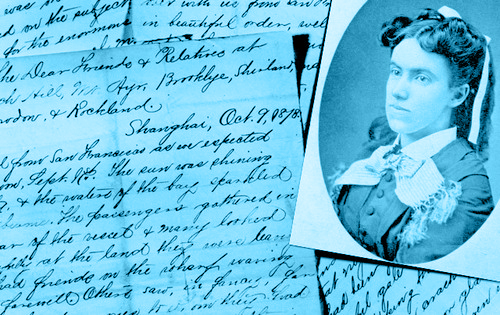If you hear about something enough times, the topic can become mundane. That’s what the name “Lottie Moon” became to me growing up in the church. I knew the name was associated with a Christmas offering, but I couldn’t tell you who she was, why the offering was named after her, or why she was worthy of remembrance. I certainly didn’t know the hardship she endured as she sought to relieve the suffering of others—placing herself in harm’s way to provide hope in the midst of a physical and spiritual famine.
Now I realize that we need to know more about Lottie Moon, and we need to pass on her legacy through word and action.

Why is the Southern Baptist annual international missions offering named in Lottie Moon’s honor? Well, simply put, she started it. Charlotte “Lottie” Diggs Moon (1840-1912) was appointed as a missionary to China by the Foreign Mission Board (later known as the IMB) at the age of 33. She spent a total of 39 years laboring for the cause of Christ in China. One of the key distinctives that made Lottie special was her ability to relate to two worlds: the Chinese world where she effectively ministered and the western world where she inspired hearts and challenged her constituents through the persuasive power of her writing.
In 1885, after serving in China for 12 years and at the age of 45, Lottie moved inland to the city of P’ingtu to continue her ministry. She believed there was no greater joy than leading another to faith in Christ. She immediately saw the need for more full-time workers and began to communicate the needs to churches in the U.S.
On September 15, 1887, Lottie penned an open letter to Southern Baptist Women pleading for more workers, specifically asking that a week be set aside for prayer and for a special offering to be taken for new missionary appointments. Her letter was published in the Foreign Mission Journal the following December. A year later, in 1888, Woman’s Missionary Union (WMU) was formed and a week in December was set aside for prayer and offerings. The first goal was $2,000, which would be enough to appoint two new female missionaries. In the end, more than $3,000 was given, resulting in the appointment of three new missionaries. The offering was later named in memory of Lottie Moon.
Lottie’s letters were effective because she embodied the type of sacrifice she called others to make. When severe famine hit China around 1912, she used her own money and belongings to provide for the needs of many. Giving everything she had to ease the pain of others, Lottie died on Christmas Eve in 1912, at the age of 72, due to severe starvation.
In one of her letters included in Classics of Christian Missions by Francis DuBose, Lottie recorded her thoughts on sacrificial giving:
I wonder how many of us really believe that “it is more blessed to give than to receive?” A woman who accepts that statement of our Lord Jesus Christ as a fact and not as “impractical idealism,” will make giving a principle of her life. She will lay aside sacredly not less than one tenth of her income of her earnings as the Lord’s money, which she would no more dare to touch for personal use than she would to steal. How many there are among our women, alas! alas! who imagine that because “Jesus paid it all,” they need pay nothing, forgetting that the prime object of their salvation was that they should follow in the footsteps of Jesus Christ in bringing back a lost world to God, and so aid in bringing the answer to the petition our Lord taught his disciples: “Thy kingdom come.”
Although her letter was written to women, we all need to hear it. Jesus paid it all so we could gain everything. Christ’s death on the cross paid the penalty of sin and reconciled man to God. And now as the redeemed children of God and His ambassadors to the world, we have been commanded to actively participate in God’s mission to reconcile men and women from every nation, tribe, people and language to Himself through the life, death and resurrection of Christ. Christ made the ultimate sacrifice to accomplish the work of God.
We are to follow His example and surrender all that we are for His glory and praise. “Lottie Moon” isn’t the name of a clever marketing campaign; it marks the legacy of a woman who followed Christ with full surrender and championed others to do the same.
When you give to the Lottie Moon Christmas Offering®, 100% goes directly to the field to support IMB missionaries serving around the world. Every penny suports men and women as they declare the majesty of Christ to a lost world. Inspired by gospel-driven partnership, LMCO is an efficient and effective initiative that God is using to extend His Kingdom to a world in desperate need of His mercy and grace.
What is the Lottie Moon Christmas Offering? from IMB on Vimeo.


